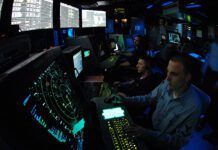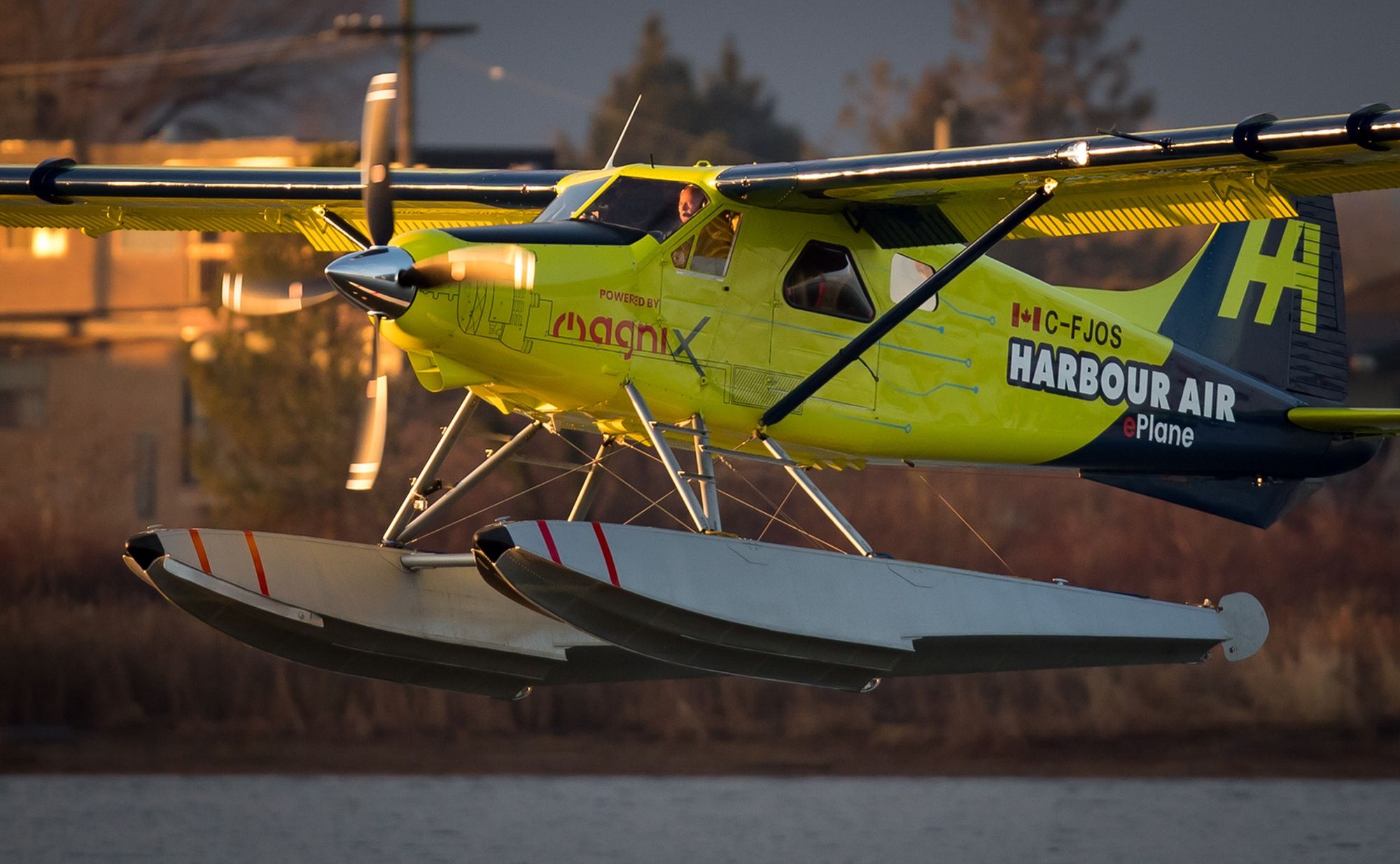Harbour Air has partnered with battery maker H55, a spinoff of the Solar Impulse circumnavigation project, to certify an electrically powered De Havilland Beaver to certification for scheduled passenger service. The airline, which serves dozens of destinations with floatplanes on Canada’s West Coast, flew a prototype version of the Beaver in late 2019 with a magniX motor up front. The plan is to STC the motor and modular battery packs produced by H55. “I believe that H55 is the leading company in aviation battery solutions,” says Greg McDougall, CEO of Harbour Air. “Having them as partners in the ePlane development means that we will be able to lead the global push for electric aviation.”
The airline has been flying the electric Beaver, figuring out its flight performance parameters, and H55 will help them finesse the design and maximize performance. The goal is to convert Harbour Air’s entire fleet to electric power. H55’s efficient battery packs will cut the weight of the conversions and boost the performance of the workhorse floatplanes. Solar Impulse founder André Borschberg said the seaplane airline’s pioneer spirit and commitment to the environment sold him on the collaboration. “We all understand that the path to electric aviation is complicated. But at the same time by joining forces, our combined experience will lead to quicker certification,” Borschberg said. “And this in turn will offer a fast and safe way to reach the market and popularize electric aviation.”




































Just a small problem with this aircraft. A 15 minute flight required a battery mass pushing the aircraft to its gross weight. One pilot, but no passengers. Nice idea, but not reality.
Were you involved with this testing and have inside information? If not, it would appear that at least part of the battery pack weight would be offset by the fuel weight savings.
We did discuss this case already, and the information presented was that it functionally had no useful load. It does not appear that that has (or could) change.
Take any piston-powered airframe today, replace the weight of the engine and fuel with the best motor and battery packs on the planet, and you will have 1/12th the range of the gas-powered counterpart. The weak link is not the electric motors, there are plenty of good ones to choose from. The problem is the energy-to-weight-ratio of the best-available batteries; they are no where close to being on-par with gasoline. We have a long ways to go for electric aviation to measure up to current alternatives. But, if Harbor Air can work with the range limitations and leverage modular batteries for quick “refueling” (so to speak), Gods speed.
Same old story as with every electric airplane idea. All that is missing from the equation that would allow creating one that might be functional for general use is a battery that has at least 20 to 50 times the energy density of what is currently available.
Now, if you want a TRULY practical airplane, i.e. not a plaything or limited to some specialized application, you should add the requirement that the battery also be affordable & durable, and that it be able to accept, say, a 80% charge in 15 minutes or so.
Same applies to cars but a very heavy battery in a very heavy car can still function. Just needs stiffer springs and more frequent tire replacement. Maybe more damage to the roads as well but the car will work (within its EV limitations). A plane simply can’t hide the weight.
I think electric motors, for cars AND airplanes might have significant advantages over piston engines (mostly in regards to maintenance and maybe reliability) but the battery is the Achilles heel.
Bravo on the collaboration. It’s a great team as any battery improvement this partnership offers will be tested in a real world, short haul, aviation environment. Battery technology is rapidly improving. I see it from the RC model realm to some very heavy hitters in the auto industry. While battery technology is rapidly improving including re-chargeability, its progress is far behind the ESC and motor developments. Eventually it will catch up enough to make this electric Beaver a viable short haul airplane. Harbor Air will have charging facilities in place as their battery partnership matures solving another infrastructure problem that will eventually have to be addressed nationwide for both ground pounder transportation and aerial operators. I am happy for this collaborative effort and look forward to their mutual progress. But I am not going to fret that my gas burning ground bound conveyances and old airplane are in any immediate danger of extinction.